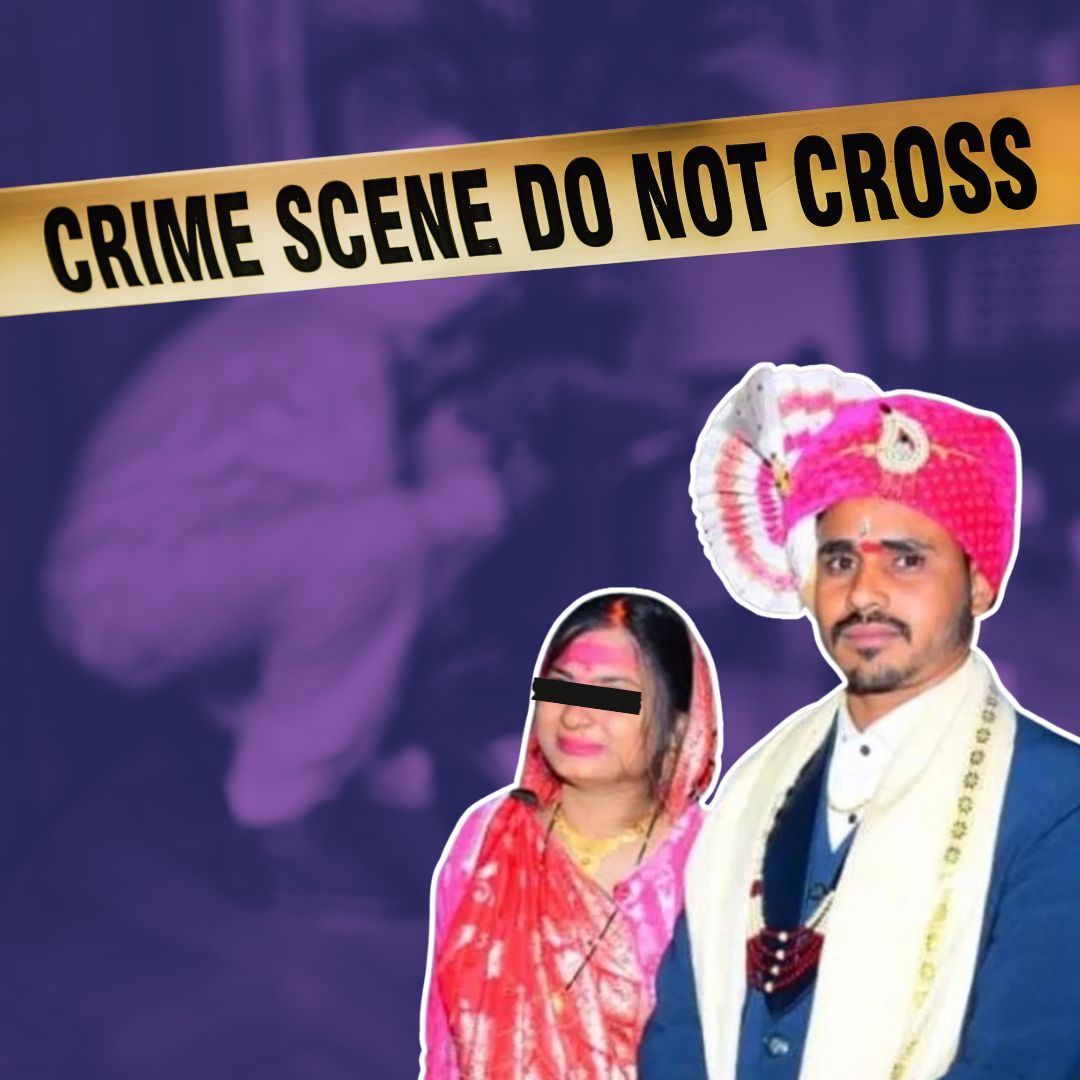A 23-year-old woman named Khushboo Pipliya from Khargone, Madhya Pradesh, escaped a horrendous ordeal after allegedly being brutally tortured by her husband, Dilip Pipliya, in a pattern of dowry and appearance-based abuse.
On the night of August 24, 2025, Dilip reportedly intoxicated tied her up, threatened her with what looked like a gun, and burned her repeatedly with a heated knife, including forcing the red-hot blade into her mouth when she screamed for help.
Khushboo suffered over 50 burn marks across her body before managing to escape in the early hours, seeking help and hospitalisation.
The police have booked the husband on multiple serious charges, and investigations are ongoing amid nationwide outrage and calls for stringent action against dowry-related violence.
“Unwanted, Burnt, and Threatened”: Survivor Recounts Trauma
Khushboo married Dilip, a scrap dealer, in February 2025, but faced rejection soon after, with her husband criticizing her appearance and voicing disdain for the marriage.
The abuse was compounded by relentless demands for dowry. On Sunday night, after drinking, Dilip not only hit and tied Khushboo, but also brandished a firearm-like object to threaten her life, pushed her into the kitchen, and used the stove to heat a kitchen knife.
According to her police statement, he branded her more than 50 times on her hands, back, torso, legs, and hips while calling her “unwanted.” Family members were reportedly present in the house but did not intervene.
Gravely injured, Khushboo freed herself at around 4:30 am and, using a cleaning staff member’s phone, reached her family, who took her to the Awarkachh district hospital where doctors began treating severe burns and psychological trauma.
“I was told again and again that I should have refused the marriage, that I wasn’t beautiful enough, and that my family owed them dowry,” Khushboo recounted.
Family’s Plight and Police Investigation Amid Intimidation
Upon learning of the attack, Khushboo’s family, led by her father Lokesh Verma, immediately attempted to report the crime but faced intimidation and threats at the Mengaon police station allegedly from the accused’s relatives.
Lokesh said the abuse and extortion had been ongoing for months but the family feared retaliation, a common hurdle for many dowry abuse victims in rural India. The case highlights the intersection of misogyny, dowry, and appearance-based shaming that young brides continue to endure.
Khargone SP Dharmaraj confirmed the case had been registered under relevant sections for intentional harm, cruelty, and dowry harassment, promising, “No one involved in the crime or its cover-up will be spared police are taking strict action”.
Meanwhile, the husband’s family claimed the burns were self-inflicted and denied the dowry allegations, which officials are rigorously investigating.
Background: A Persistent Social Malaise
This shocking incident is part of a grim, ongoing trend in India, despite decades of anti-dowry legislation. Studies and police records show frequent under-reporting, especially in towns and villages where family ‘honour’ and fear deter survivors from seeking justice.
The latest national crime data estimate that a woman dies in a dowry-related incident every hour in India. Madhya Pradesh, in particular, has witnessed several high-profile dowry violence cases this year alone.
Activists urge for not just swift legal punishment but also improved victim support, widespread community education, and a change in societal attitudes towards women.
Legal experts stress that incidents like Khushboo’s reflect deep-seated patriarchal biases her injuries, both physical and emotional, are evidence of a systemic failure to protect women and ensure genuine accountability.
The Logical Indian’s Perspective
What happened to Khushboo is not just an individual crime but a reflection of the collective abdication of our ethical duties towards women, especially new brides. At The Logical Indian, we assert that kindness, empathy, and zero-tolerance for any form of violence are non-negotiable in a civilised society. Every case of domestic brutality especially when spurred by financial or appearance-based prejudice must drive us to speak out, support survivors, and proactively challenge such traditions.












